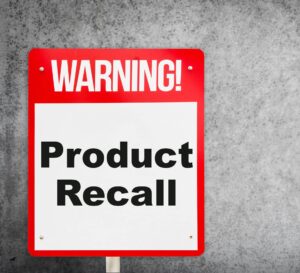
In Georgia, car insurance is required. It is there to protect both drivers and passengers in the event of an accident.
Minimum Requirements
If you drive a car in Georgia, you must have automobile liability insurance for the minimum limits required by law to drive on public roads and highways. Liability coverage pays for any damages you may cause to another driver or their property while on the road.
The minimum limits of liability required under Georgia law are:
- $25,000 for bodily injury per person in an accident;
- $50,000 for bodily injury or death of multiple people in an accident; and
- $25,000 for property destruction of others in an accident.
Acceptable proof of Georgia liability insurance coverage:
- Proof of insurance, filed by your insurance company, in the Department of Revenue’s database.
- Rental agreement for a vehicle that is being rented.
- Bill of Sale dated within 30 days of the date the vehicle was purchased and a valid insurance binder page.
- A valid Self-Insured Insurance Card and a Certificate of Self-Insurance.
- Valid Insurance policy information card for Georgia International Registration Plan.
Optional Coverage
If you can afford it, it is recommended that you also purchase additional coverage beyond the liability insurance. While additional coverage is not required by state law, it may be required by the bank or finance company if there is a loan on the vehicle or if the vehicle is being leased. Additional coverage provides you with extra protection in the event of not only a collision but other non-accident related damages to your car.
Here are the most common types of optional kinds of insurance:
- Collision Insurance: This covers you in the case of collision with other vehicles.
- Comprehensive Insurance: This covers your car for non-accident related damages such as theft, vandalism, and fire damage.
- Uninsured Driver Insurance: This covers you if you are hit by an uninsured or underinsured driver.
Showing Proof of Auto Insurance
You should keep a copy of your insurance policy card and registration in your vehicle. You must also be registered in the Georgia Electronic Insurance Compliance System (GEICS). This is used by law enforcement during traffic stops. Your insurance provider is responsible for registering you with GEICS.
Here are some common instances where you might need to show proof of auto insurance:
- At the DMV when renewing, reinstating, and changing license plates.
- At the request of a police officer during a traffic stop.
- After an accident.
The Penalty for Driving Without Insurance
Driving a vehicle while the registration is suspended, revoked, or canceled is a criminal offense.
By law, the Georgia Department of Revenue must:
- Suspend or revoke the registration of any vehicle that does not have continuous Georgia Liability insurance coverage.
- Fine the vehicle owner/lessee $25 for any lapse of coverage while the vehicle is actively registered.
- Fine the vehicle owner/lessee up to $160 in addition to the $25 fine if the lapse of coverage fine is not paid within 30 days and
- Refuse to renew or reinstate vehicle registration for any of the following:
- Fines have not been paid
- An unresolved lapse of coverage
- The vehicle is not insured
For More Information, Contact Our Georgia Car Accident Attorneys
If you have been in a car accident and you feel like you are owed compensation from an insurance company, contact Williams Elleby Howard & Easter to schedule a free consultation by calling 833-LEGALGA.





